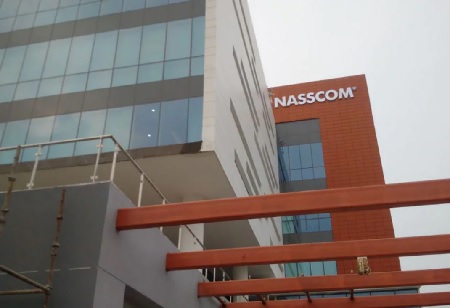
Nasscom signs Mou with the German Mittelstand Association - BVMW to boost the sme collaboration

 The National Association of Software and Services Companies (NASSCOM) and The German Association of Small and Medium-sized Businesses (BVMW) today announced the signing of a Memorandum of Understanding (MoU). This MoU will aim to enhance cooperation and encourage the expansion of bilateral relations in trade and business between Indian technology SMEs and German SME companies.
The National Association of Software and Services Companies (NASSCOM) and The German Association of Small and Medium-sized Businesses (BVMW) today announced the signing of a Memorandum of Understanding (MoU). This MoU will aim to enhance cooperation and encourage the expansion of bilateral relations in trade and business between Indian technology SMEs and German SME companies.
The MoU will actively promote investments, joint ventures, and exchange of business delegation with an endeavor to develop strong linkages between both entities for business collaboration in the field of digital technologies. Highlighting the importance of partnership in the digital era, the MoU will also encourage the organization of activities such as seminars, conferences, and roadshows by specialists in India and Germany, as well as conduct trade fairs and exhibitions with an objective of giving Indian SME companies a hands on understanding on “go to market” strategy with German Mittelstand companies.
Executive Chairman of The German Mittelstand. BVMW, Markus Jerger assessed the new cooperation between BVMW and NASSCOM as an important step towards sustainable and long-term relationship between German smaller and medium-sized companies and the Indian IT sector: “The signing of the MOU is a formal procedure to legitimize our partnership with NASSCOM. In order to make this coalition work both sides have to commit fully. We have already planned concrete actions and will bring our member companies together in the framework of different occasions, thus we let the know-how to collide and produce new ideas, new initiatives, new business partnerships. In the digital era it is crucial for the backbone of German economy - SMEs digitalize their business processes in order to stay competitive in global market. I am sure that the expertise and resources of our Indian partners in the IT sector could contribute to that.”
Commenting on the potential outcomes of the MoU, Debjani Ghosh, President at NASSCOM said, “The Techade has brought in multiple new avenues for businesses to flourish, especially for the SME sector that has been a critical fulcrum for India’s economic growth. While Germany has excelled in cutting-edge research, R&D and manufacturing, India’s tech SME sector has undergone a massive digital transformation with the use of emerging technologies and Cloud and high skilled digital talent. A strong win-win partnership leveraging the strengths of both India and Germany will be essential in further amplifying the growth factors for the SME sector globally.”
Highlighting the importance of the MoU signed between NASSCOM and BVMW, Ambassador of India to Germany H.E. Harish Parvathaneni said, “The MoU will further strengthen the Digital Partnership between Indian and German business and industry.” He mentioned that after the successful visit of Hon’ble Prime Minister last month for the Sixth India Germany Inter Governmental Consultations in Berlin, the scope for cooperation in the digital sector with Germany has gone up tremendously, and will only grow further.
“German businesses and federal and state governments are increasingly focused on a massive expansion of digitalisation and green technologies to prevent future supply chain disruptions, enhance productivity and to reduce their carbon footprint. AI, IOT, big data and digitalisation present a huge opportunity for the Indian IT industry to partner with Germany. The Industry-driven MoU between NASSCOM and BVMW will act as an important instrument in this regard to facilitate cooperation between the German Mittelstand and Indian SMEs”, he added.
The strategic collaboration will facilitate the development of mutually beneficial relationships by enabling cross-sharing of non-confidential information on economic and commercial matters, technology landscape, local ecosystem and digital talent to respective members and encourage SMEs on both sides to expand their digital business in India and Germany, respectively.